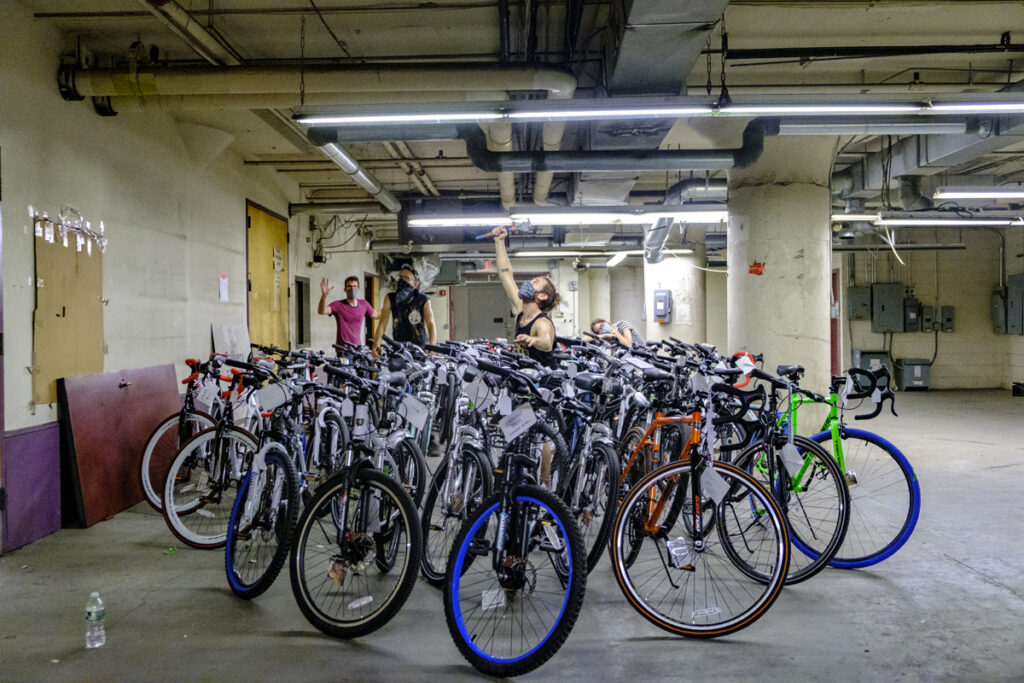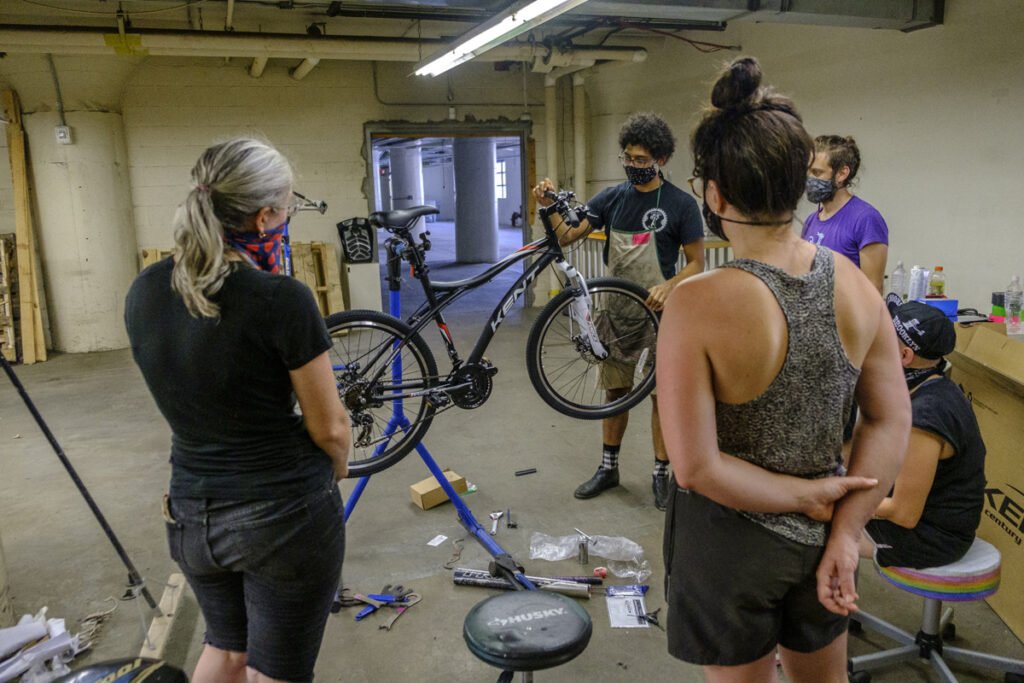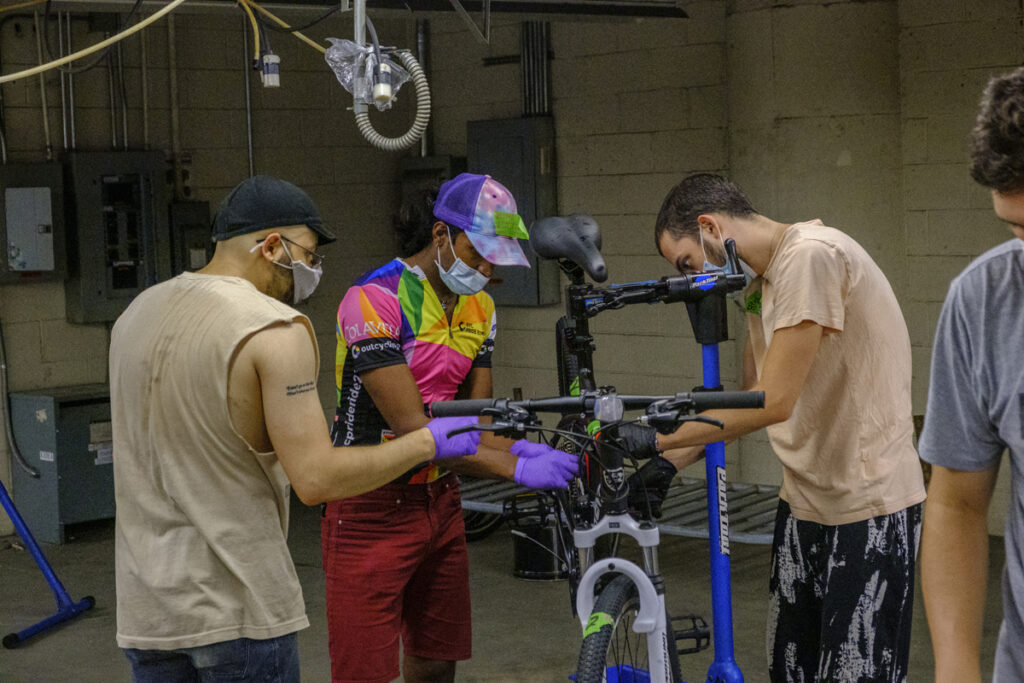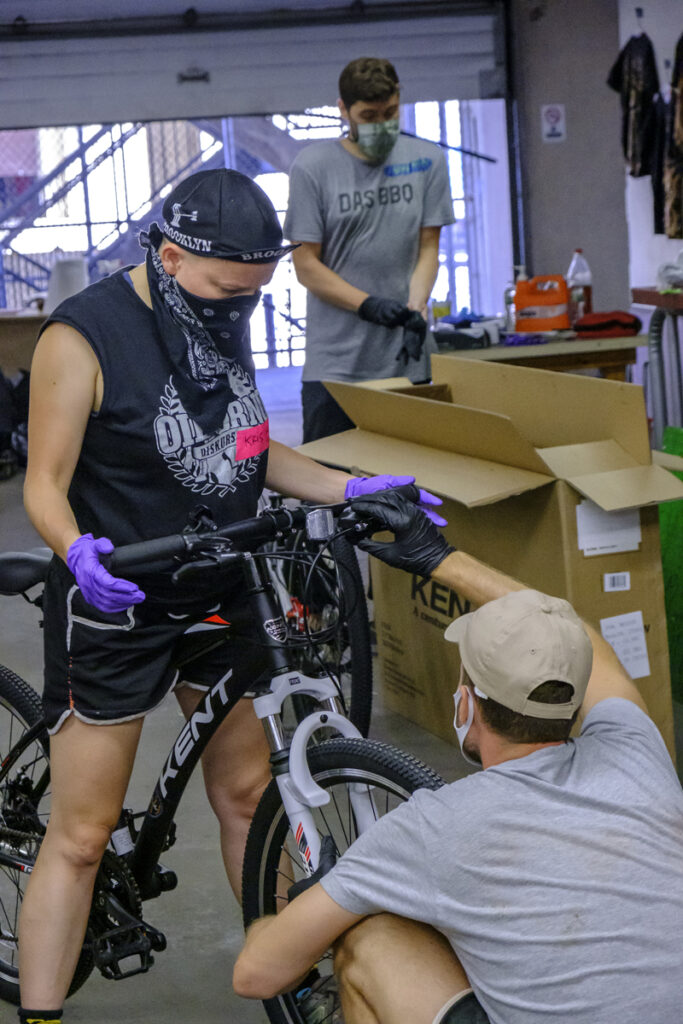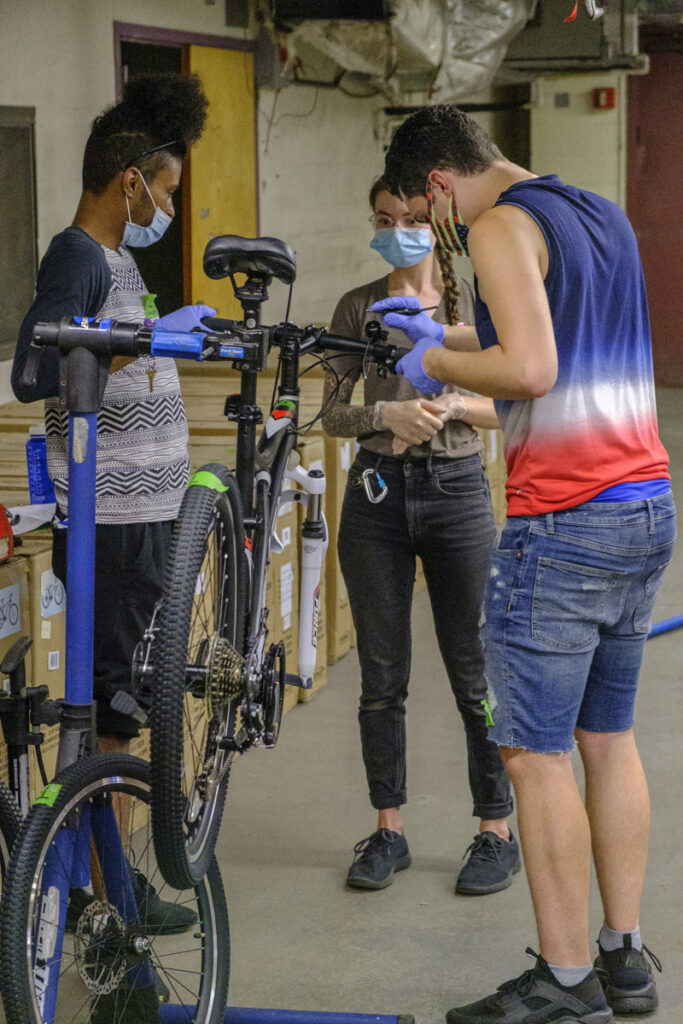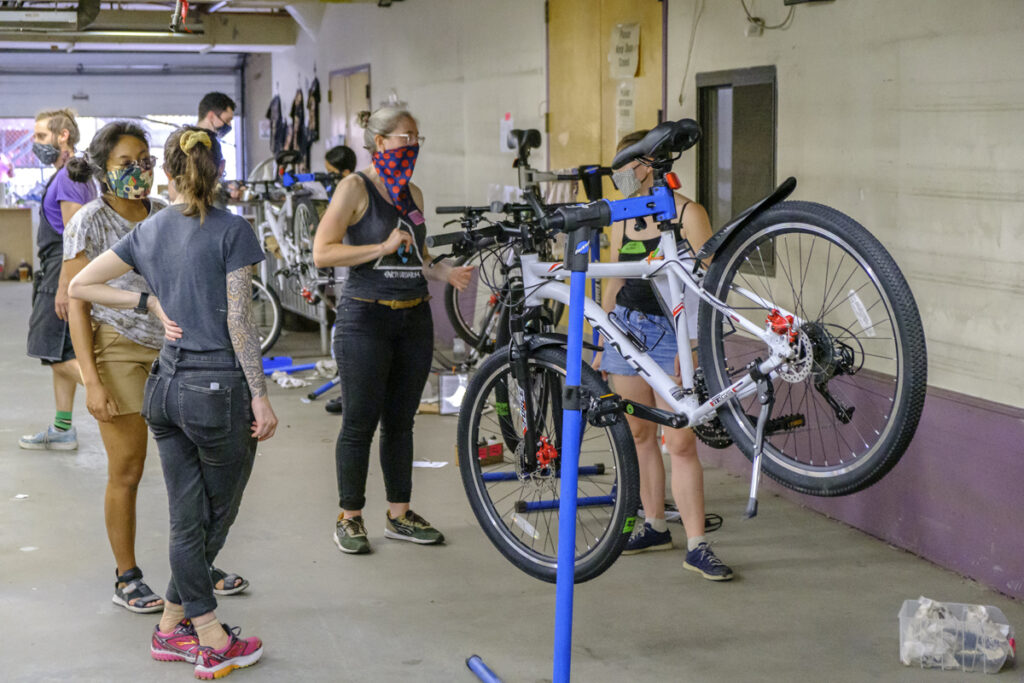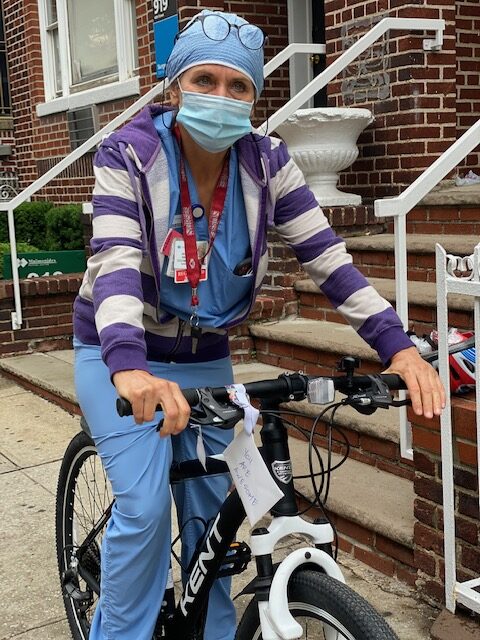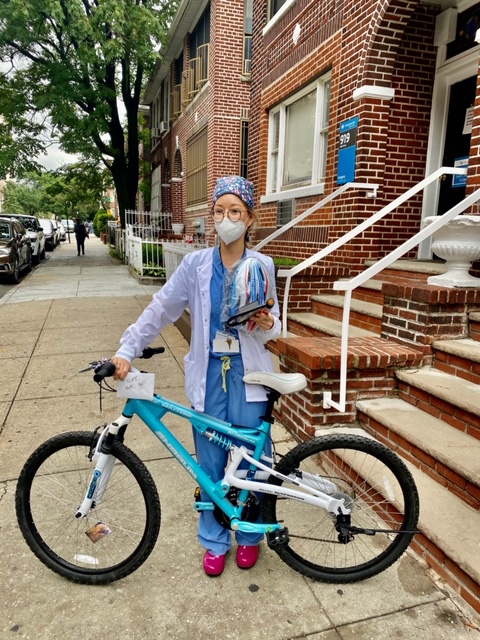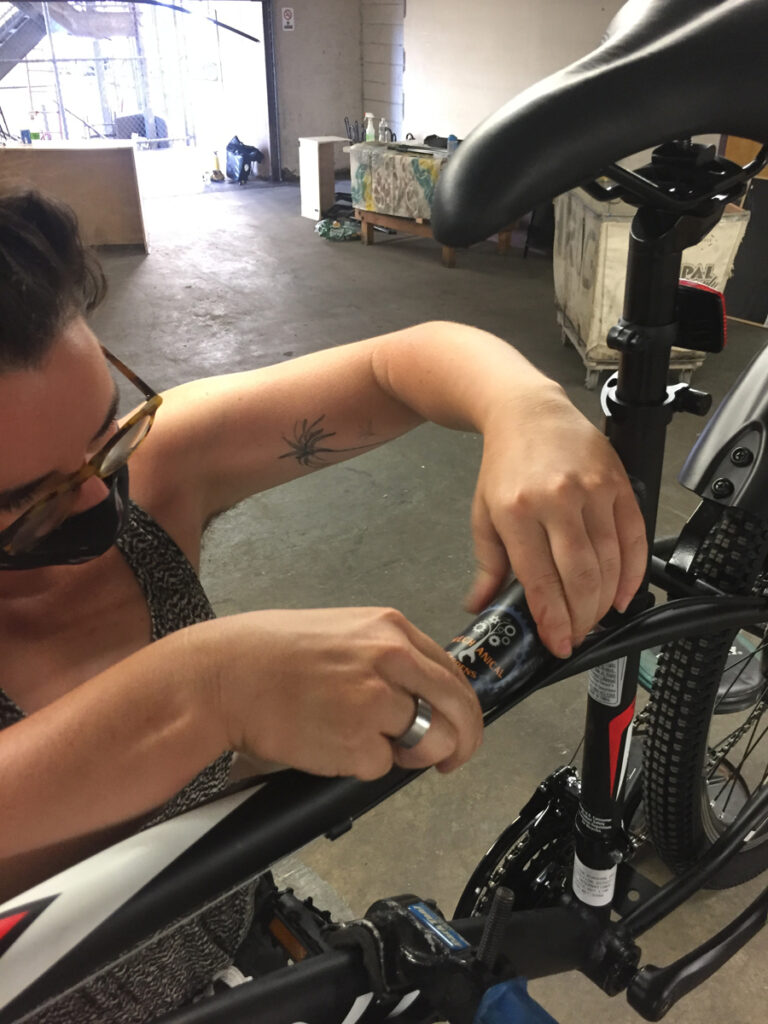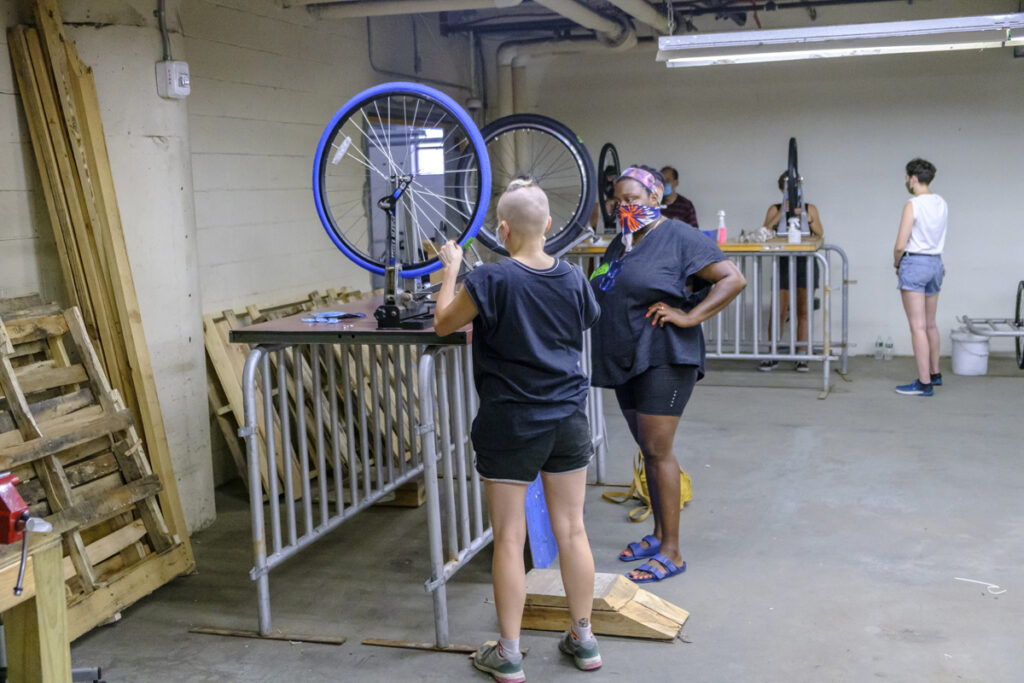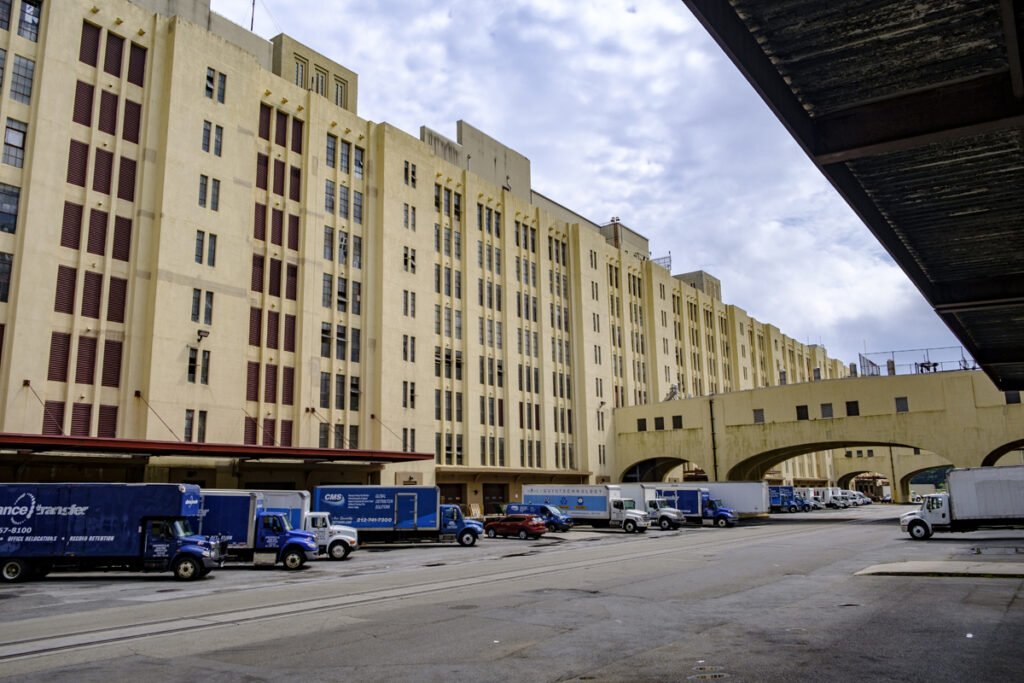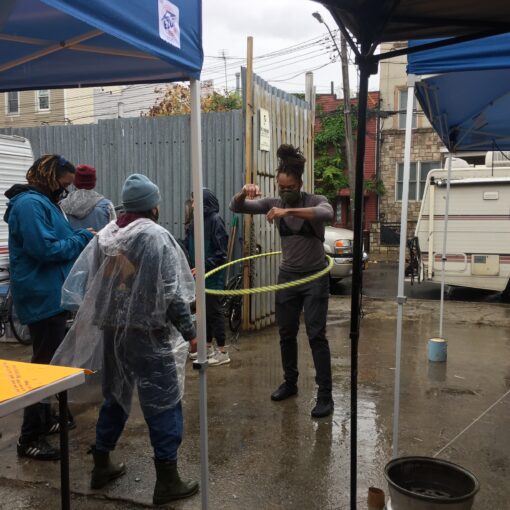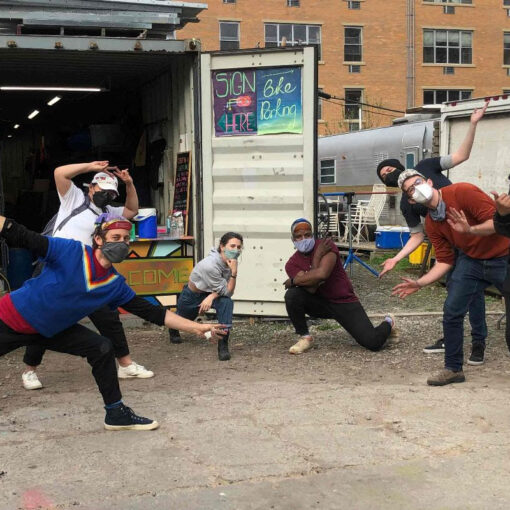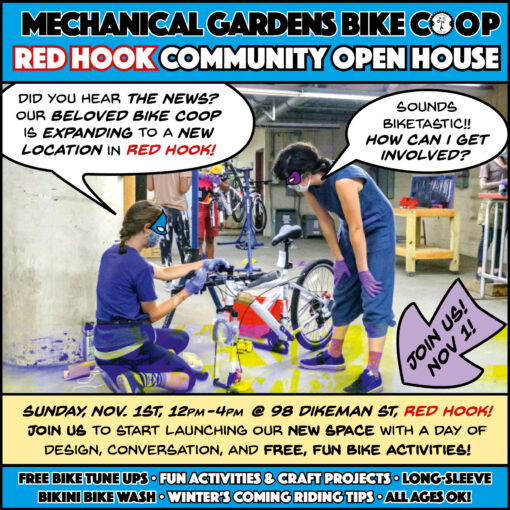On a blistering July weekend, the Brooklyn Army Terminal returned to its origins as a staging ground for confronting a global crisis — but this time, instead of soldiers assembling to fight the Nazis, it was an army of volunteers assembling bicycles for hospital workers to fight COVID-19. During a bustling two-day “Bike Build-a-Thon,” the Mechanical Gardens Bike Co-op mobilized roughly one hundred community volunteers and a crew of apprentice mechanics from communities underrepresented in cycling to build fifty bicycles for frontline workers at New York City hospitals.
COVID-19 set off a national bicycle shortage when it made bicycling critical to urban mobility. As a result, the same New Yorkers who rely most on bikes for everyday mobility also face the greatest difficulties in getting bikes and keeping them working. “The scarcity of affordable bikes today has dramatically intensified NYC’s long-standing bike equity gap,” says Josh Bisker, Executive Director of the Mechanical Gardens Bike Co-op. “Just like the virus itself, the lack of bike access hits hardest against black, brown, poor, and working class communities — including front-line healthcare workers at NYC’s hospitals. This vicious cycle shows how now, more than ever, bicycling is a frontline against structural racism and public health inequality in NYC.” The Bike Co-op’s solution? Bisker says that “fair access to biking depends on fair access to both bikes and repairs — and that means making not only bikes but mechanical education, tools, and resources available to everyone.”
At the Build-a-Thon, Bike Co-op mechanics taught every volunteer (in socially distanced workshops) how to undertake some element of the bikes’ assembly or repair. Meanwhile, to help build capacity among emerging leaders hailing specifically from communities that face systemic barriers to mechanical training, the bike coop also launched a paid Apprentice Mechanic Youth Fellowship. Thanks to grants from the Awesome Foundation and Citizens Committee of New York, the coop provided fellowships for four members of the Fearless Flyers, an LGBTQ+ youth ride club organized by the community bicycling group Out Cycling. They received focused training sessions to develop a solid foundation of mechanical skills.
“We were excited to be a part of this project even before the first training workshop, and now this is all we can talk about,” says Momo Ullah, Operations and Event Manager for OutCycling and the Fearless Flyers Youth Program. “Working with the Mechanical Gardens is giving us confidence in our own abilities to take care of our bikes, and the workshops take away any worries we had about learning how to do it. Many of the young people in the Fearless Flyers program use their bikes as their primary form of transportation, their source of income, and a way to stay active and fit. At the Build-a-Thon, we get to use what we’re learning to support health care workers with great new bikes, and after we’re done, we’ll get to use the same skills to fix and maintain our own bikes too.”
Out in the world, the bikes are already making an impact. “I’m a nurse at Maimonides Hospital, and I know some fellow nurses who won bikes,” says Suzanne Polivy, one of the Mechanical Gardens regular volunteers. “They are SO thrilled and so appreciative of everyone’s hard work and want to say ‘thank you so so much!’ It’s the talk of the unit! I just wanted to send along the message so you all know that real healthcare workers are excitedly riding home from work today on the bikes you built. (Bike commuting converts, I hope!) Everyone is SO impressed.”
The Bike Build-a-Thon came about through a partnership with New York City Economic Development Corporation, who manages the Brooklyn Army Terminal and connected with local hospital partners, NYC Department of Transportation, who secured the donation of fifty raw bikes from Kent Bicycles, and Lfty, who provided essential funding for the project.
“We are proud of our collaboration with our partners at NYCEDC, Lyft, and others to provide bikes at no cost to hospital staff and other essential workers who have been on the front lines of the COVID-19 crisis,” said NYC DOT Commissioner Polly Trottenberg. “We thank the Mechanical Gardens Bike Co-op for this new effort to give even more workers access to convenient bicycle commutes, while also making sure New Yorkers in more communities have bike maintenance skills.”
“We are thrilled that the Brooklyn Army Terminal can serve as a hub to assemble bikes for our front-line healthcare workers,” said James Patchett, president and CEO of the New York City Economic Development Corporation. “It is inspiring to see these incredible youth volunteers come together to support those who have given our city so much. Efforts like these remind us of New York’s resilience and that when we come together, we can meet any challenge.”
“Thanks to the NYC EDC and DOT’s leadership on this project, we can provide healthcare workers with bikes,” said the Mechanical Gardens in a statement. “And thanks to the Citizens Committee, Awesome Foundation, and Lyft, we can begin training a group of young BI POC LGBTQ+ leaders in bike repair fundamentals, building community capacity to weather this crisis and grow stronger.”
Most of the Build-a-Thon’s volunteers were bike repair novices who came to contribute their time and learn from the Bike Co-op’s educational approach as they went. “I’ll tell you one thing I learned,” remarked one volunteer as she finished her shift. “A new respect for my bike mechanic.”
ABOUT Mechanical Gardens Bike Co-op
Mechanical Gardens is a collectively owned and operated bicycle co-operative that provides access to the tools and education that New Yorkers need to fix their own bikes. Since 2016, Mechanical Garden’s weekly Open Hours, hosted at St John’s Church in Brooklyn, offer an accessible, free or donation-based space for New Yorkers to work on bikes. Mechanical Gardens is a project of 501(c)3 Alliance for Global Justice.
About NYCEDCNew York City Economic Development Corporation creates shared prosperity across New York City’s five boroughs by strengthening neighborhoods and creating good jobs. NYCEDC works with and for communities to provide them with the resources they need to thrive, and we invest in projects that increase sustainability, support job growth, develop talent, and spark innovation to strengthen the City’s competitive advantage. To learn more about our work and initiatives, please visit us on Facebook, Twitter, or Instagram.

